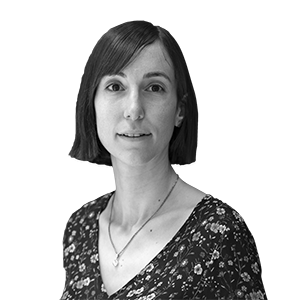Two great monsters burst onto the stage at the Grec
Josep Maria Miró premieres 'The Monster' at the Sala Beckett, and Pau Roca directs 'Who Killed My Father?' at the Heartbreak Hotel.


BarcelonaWhat do we do with the monstrosity of others? Can we come to understand and dialogue with someone who has hurt us? What role does the community have in dealing with those responsible for abject actions? Theater often serves to seek answers, or at least to bring questions to the stage and make them resonate with the audience. This is the driving force behind two Grec Festival shows led by monsters: Who killed my father?, by Édouard Louis, directed by Pau Roca and starring Dafnis Balduz; and The monster, by Josep Maria Miró, directed by himself and starring Àurea Márquez, Joan Negrié and Albert Prat. The first premieres on July 1st at the Heartbreak Hotel (they will have three performances and are already sold out, but they will return in the fall) and the second will be at the Sala Beckett from July 3rd to 27th.
"What struck us most about this text is how it invites us to understand and empathize with people who, surely, are very far away from us in life and emotion," Pau Roca emphasizes. Originally, Who killed my father? It appeared in book form; in Catalan it was published by Más Libros in 2019 and translated by Rubén Luzón. He conceived it as a long letter addressed to his father, a homophobic, far-right garbage collector with whom he was in it. There are reproaches and a great desire to understand his father," defines the director. The success of the book prompted German director Thomas Ostermeier to bring it to the stage in a monologue starring Louis himself and which It could be seen in 2023 in Salt, within the Temporada Alta festival.
Roca explains that he wanted to stay away from that show in order to build his own version, and that's why he hasn't seen it. In the rehearsal room before the premiere at the Heartbreak Hotel, he says they're asking themselves a lot of questions. "Everything," the director explains, adding that they feel a great responsibility "because it's a necessary text" and "it can't be trivialized when it comes to bringing it to the stage."
The Construction of a Monster
The other monster at the Grec Theatre is a ghostly, ethereal and unique character conceived by Josep Maria Miró and performed by Joan Negrié at the Sala Beckett. The monster, which won the Quim Masó award and the Jardiel Poncela Theatre AwardMiró imagines an isolated village that revolves around a factory, where women work primarily. Every year, following tradition, at the end of spring, men choose the most beautiful woman and parade her through the streets, until one day a terrible event occurs at the hands of a man baptized as the Monster, who soon disappears. His reappearance 20 years later marks the stage journey that Santi, the monster's best friend, and Berta, who was once voted the prettiest girl in town, will also make.
"It's a show about the construction of a monster, but also about the construction of a past. It speaks to the community's need to reconstruct what happened, to deconstruct and deform," says Josep Maria Miró. "The past is the time we fictionalize the most. We reconstruct memories; it's the everyday time of fiction. As Harold Pinter said: 'The past is what you remember, what you imagine you remember, what you convince yourself you remember, or what you pretend you remember,'" says the director.
The monster was born at the suggestion of Negrié, who suggested to Miró to start a project together, and it dialogues with his previous works such as The most beautiful body ever found on this site and The housekeeper. However, these two are part of a triptych of monologues, the third part of which is still in the process of creation. "I have the feeling that since Wild weather I have launched a search for other places of theatricality," explains the director, who admits that the pandemic and confinement were a turning point in his works. "I feel like I'm moving to another place, with very essential texts, based above all on language and which are painful to be staged realistically," he says.
